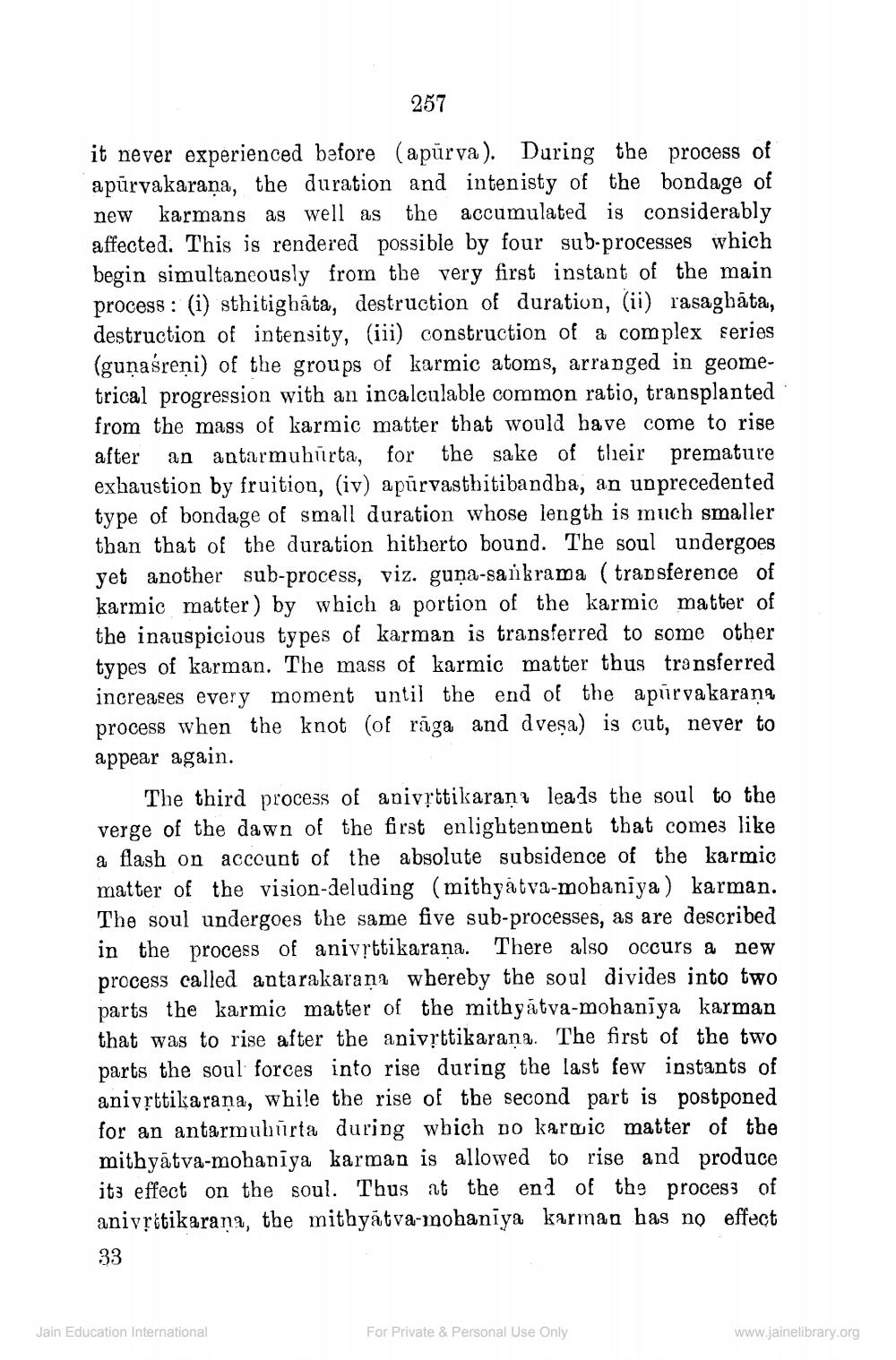________________
257
it never experienced before (apurva). During the process of apurvakarana, the duration and intenisty of the bondage of new karmans as well as the accumulated is considerably affected. This is rendered possible by four sub-processes which begin simultaneously from the very first instant of the main process: (i) sthitighata, destruction of duration, (ii) rasaghata, destruction of intensity, (iii) construction of a complex series (gunasreni) of the groups of karmic atoms, arranged in geometrical progression with an incalculable common ratio, transplanted from the mass of karmic matter that would have come to rise after an antarmuhurta, for the sake of their premature exhaustion by fruition, (iv) apurvasthitibandha, an unprecedented type of bondage of small duration whose length is much smaller than that of the duration hitherto bound. The soul undergoes yet another sub-process, viz. guna-sankrama (transference of karmic matter) by which a portion of the karmic matter of the inauspicious types of karman is transferred to some other types of karman. The mass of karmic matter thus transferred increases every moment until the end of the apurvakarana process when the knot (of raga and dveṣa) is cut, never to appear again.
The third process of anivṛttikarana leads the soul to the verge of the dawn of the first enlightenment that comes like a flash on account of the absolute subsidence of the karmic matter of the vision-deluding (mithyatva-mohaniya) karman. The soul undergoes the same five sub-processes, as are described in the process of anivṛttikarana. There also occurs a new process called antarakarana whereby the soul divides into two parts the karmic matter of the mithyatva-mohaniya karman that was to rise after the anivṛttikarana. The first of the two parts the soul forces into rise during the last few instants of anivṛttikarana, while the rise of the second part is postponed for an antarmuhurta during which no karmic matter of the mithyatva-mohaniya karman is allowed to rise and produce its effect on the soul. Thus at the end of the process of anivritikarana, the mithyatva-mohaniya karman has no effect
3833
Jain Education International
For Private & Personal Use Only
www.jainelibrary.org




